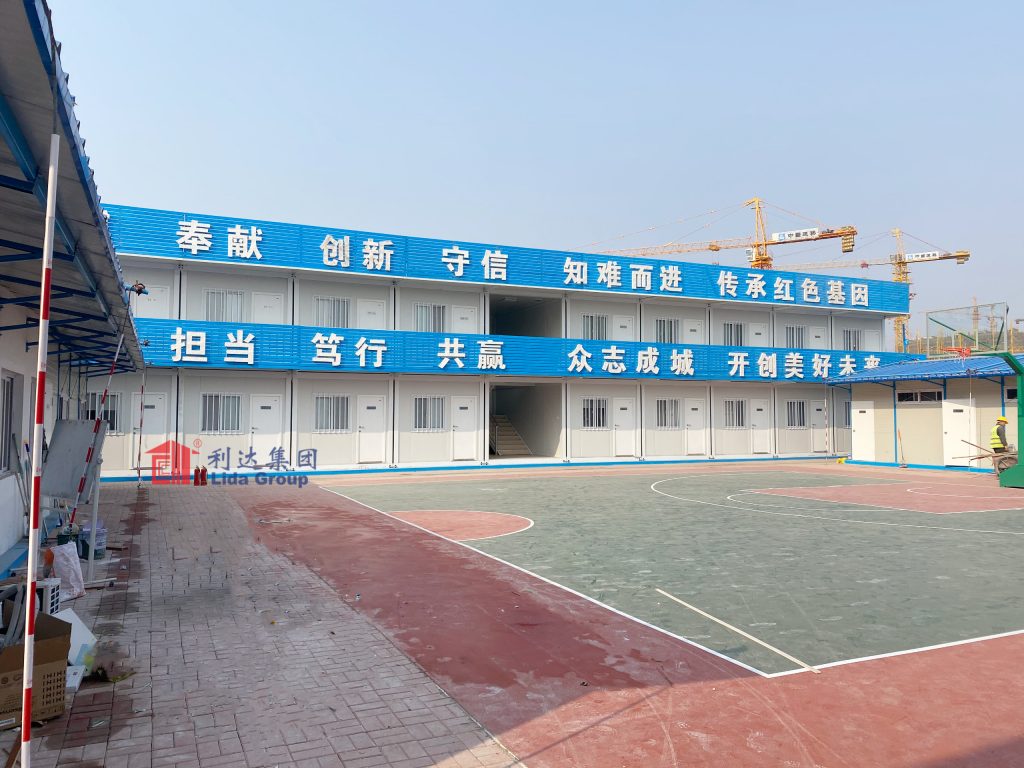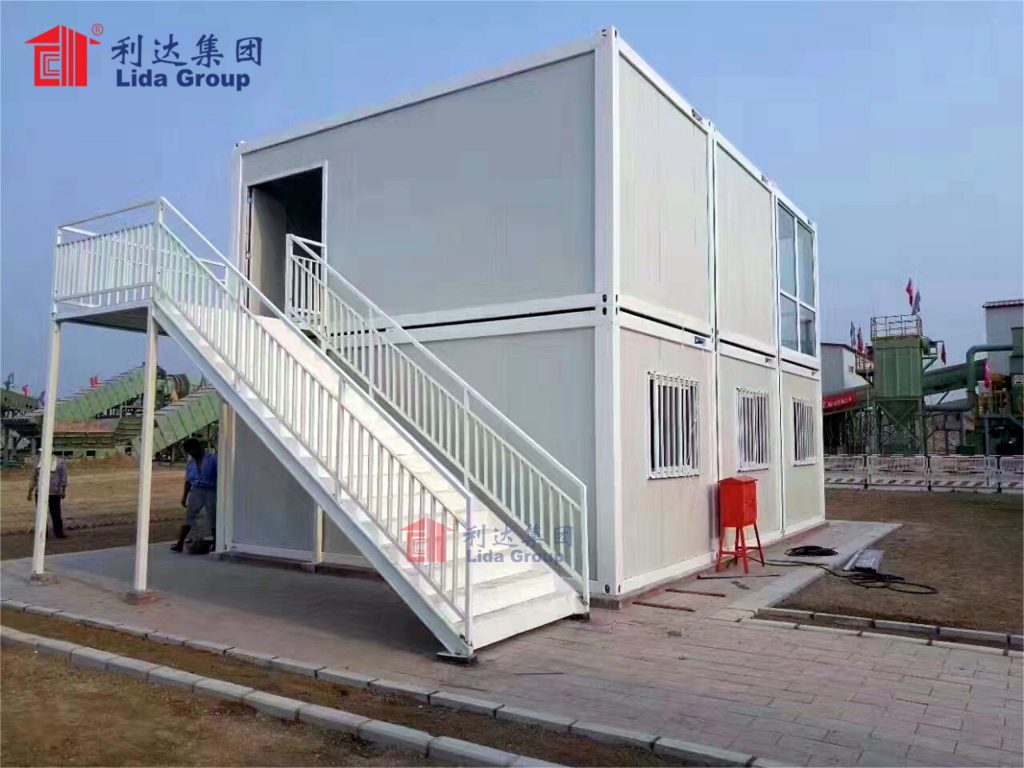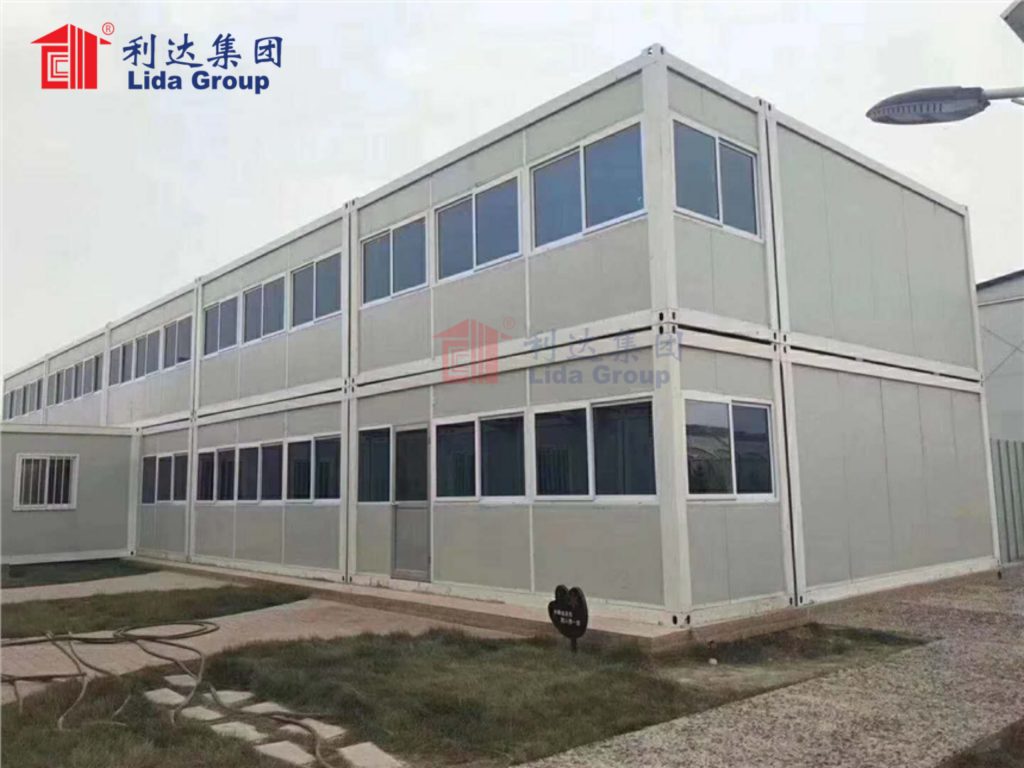The coastal nation of Myanmar experiences frequent damaging cyclones during its monsoon season from May to October each year. Strong winds and heavy rains from these powerful storms threaten lives and destroy property. To better protect vulnerable populations from the impacts of cyclonic weather, the government of Myanmar has partnered with Chinese prefabricated shelter manufacturer Lida Group to provide ready-made evacuation center kits. These flat-packed shelter solutions offer a quicker means of establishing safe spaces for those displaced by cyclones.
Myanmar faces significant challenges in preparing for and responding to cyclones due to underdeveloped infrastructure and lack of resources in many coastal areas. Over half the population lives in rural villages without access to strong shelter or emergency services. This exposure leaves many at high risk should a severe storm make landfall. Following particularly devastating cyclones in recent years, local and national officials sought to enhance disaster management capabilities. Rapid deployment of temporary housing was identified as a priority to improve cyclone evacuation and relief operations going forward.
Establishing evacuation centers after a storm can be a long, difficult process when starting from nothing but damaged ground. Conventional wooden or metal buildings require heavy equipment, crews, and extensive time on site for construction. Under impending threat or in the direct aftermath of a powerful cyclone, there are limited windows to get people to safety. Seeking a faster solution, representatives from Myanmar’s relief agencies contacted Lida Group, a leader in global prefabricated construction with experience serving humanitarian aid missions. Lida proposed their flat-packed shelter kits as a timely means of erecting secure accommodation for evacuees.

Lida Group’s prefab shelters are primarily composed of lightweight steel framing, wall panels, and flat-packed floor, ceiling and roof cassettes. All components are engineered off site for swift assembly with basic hand tools at the destination. The modular units interlock like puzzle pieces without need for heavy lifting equipment or skilled labor teams. For cyclone shelter applications, Lida also incorporates their patented insulating panel technology developed for refugee camp housing. These panels provide enhanced durability, stability, and thermal/weather protection compared to traditional tarp or tent materials. Integrated into the framing system, the insulation helps regulate interior temperatures and buffer against wind, rain and flood dangers.
Through initial discussions, Lida Group engineers gained better understanding of the hazards cyclones present in Myanmar and the environments their shelters would be deployed within. Flatter coastal plains, dense mangrove forests and river deltas pose unique challenges compared to mountainous terrains Lida is accustomed to working in. To optimize the prefab kit design for these conditions, extensive wind tunnel testing was conducted at Lida’s research facilities. Alternative panel configurations, reinforcements and anchoring systems were prototyped and stress tested to withstand projected storm conditions, like 150+ kph sustained winds and torrential rainfall. Feedback from Myanmar disaster management agencies further refined the shelter package to incorporate important logistical considerations for swift emergency response.
With engineering validations complete, Lida Group began mass production of the custom cyclone evacuation shelter kits for initial deployment in Myanmar. Each kit contains all materials, tools and instructions needed to construct a fully insulated 48 sqm shelter accommodating up to 20 people. The flat-packed components nest together compactly for efficient ground or air transport even to remote coastal villages with limited road access. At the destination, assembly requires only 4-6 people roughly 6 hours to set up a completed shelter ready for occupancy. This is a small fraction of the time and resources conventional post-disaster housing construction demands.

Following successful pilots in several test sites, Myanmar has now received over 1,000 of Lida Group’s prefab shelter kits through a multi-year relief partnership agreement. The stockpiled evacuation centers are strategically pre-positioned at vulnerable points along the coast. Local first responder teams have undergone training workshops by Lida to become proficient in rapid kit deployment. Should destructive cyclonic winds be detected, people can immediately seek refuge in the pre-assembled shelters while weather conditions remain unsafe. Having a pre-planned network of sturdy, insulated evacuation centers in place represents a major upgrade over prior reliance on temporary outdoor accommodations like tents or tarps. It significantly improves safety, comfort and disease prevention for displaced populations between the storm and full recovery access being restored.
To maintain preparedness, Lida Group also provides ongoing technical support, repairs and replacement parts through their in-country representatives. Due to the modular kit design, damaged sections are simply unclipped and new components clicked into place. This sustainably extends the shelters’ usable lifespans through multiple cyclones over many seasons, whereas conventional post-disaster construction would need complete rebuilding each time. Lida engineers additionally keep abreast of evolving storm predictions as climate patterns change, and upgrade the kits proactively when warranted to keep pace with any augmenting threats. The partnership strives for continuous improvement of Myanmar’s disaster mitigation capabilities through adaptable housing solutions.
The introduction of Lida Group’s flat-packed cyclone evacuation shelters has already demonstrated effectiveness during test deployments and real emergency responses. Most notably, over 300 kits were rapidly constructed when Tropical Cyclone Nargis struck in May 2008, the worst natural disaster in Myanmar’s recorded history. With winds over 200 kph and massive flooding, over 138,000 lives were unfortunately lost across the densely populated Irrawaddy Delta region. Those who made it to the pre-positioned Lida shelters, however, found refuge from the raging elements until recovery access was restored. Without this critical lifesaving infrastructure in place, casualty numbers from the lethal supercyclone surely would have been even higher.

In subsequent seasons, additional cyclones have also been successfully weathered from within the durable, insulating prefab shelters. Compared to traditional post-storm tent villages, evacuation centers experience significantly lower instances of illness and greater overall well-being according to health monitors. Occupants widely praise feeling safer, drier and more protected than other options during dangerous storms. Myanmar disaster management likewise commends the strategic upgrade provided by Lida Group’s housing solutions. With climate change projections forecasting more extreme cyclones ahead, having reliable evacuation infrastructure is becoming increasingly crucial for vulnerable coastal areas.
Through this innovative partnership, developing country Myanmar is empowered with advanced prefabricated shelter technologies traditionally seen more in industrialized relief contexts. Fast, effective emergency response capacity has been strengthened where it was desperately needed most. Lida Group’s flat-packed, modular evacuation center kits prove construction does not need to halt during disasters, buildings can still rapidly materialize even under the harshest conditions. This sets an inspirational new standard for disaster mitigation worldwide – one that scales preparedness and resilience to the levels required by 21st century mega-storm realities, especially for at-risk frontline communities. Most importantly, lives have demonstrably been saved already with potential for many more to directly benefit in future as climate change impacts intensify strategic adaptation through nimble prefab housing solutions.
In summary, the collaboration between Myanmar’s government and prefab manufacturer Lida Group establishes a pioneering model for improving cyclone disaster response and evacuee protection in developing regions. Through wind tunnel tested engineering, flat-packed componentry, integrated insulation panels and strategic pre-positioning, over 1,000 durable, efficient prefabricated shelter kits now provide secure refuge far outpacing conventional post-storm construction means. Initial pilots and real emergency deployments prove the specially designed evacuation centers withstand projected storm hazards while maintaining occupant safety, health and comfort between danger and recovery access. Continuous upgrades keep pace with evolving weather threats as climate change progresses. Most significantly, lives have been directly saved with hundreds housed effectively during the deadliest cyclone on record. This innovative partnership empowering developing infrastructure demonstrates prefabrication can scale relief preparedness to 21st century realities worldwide.

Related news
-
Contractors praise speed and budget of projects using Lida Group's panelized structural steel building systems for rural commercial and institutional developments.
2024-09-13 11:47:46
-
Lida Group introduces new structural steel panel technology for fast erection of industrial warehouses that can be economically expanded over time to meet growing business needs.
2024-09-12 14:48:48
-
Poultry producer partners with fabrication specialists at Lida Group to construct large-scale cost-efficient steel-framed poultry housing for egg and broiler operations.
2024-09-12 14:22:10
contact us
- Tel: +86-532-88966982
- Whatsapp: +86-13793209022
- E-mail: sales@lidajituan.com


